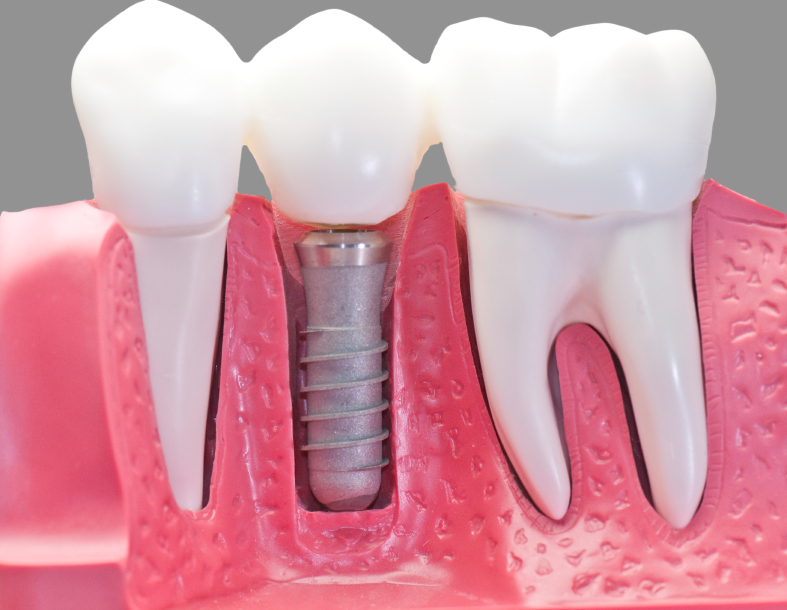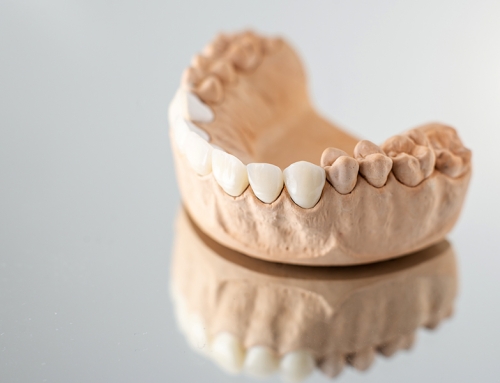Dental Implants

f you are looking for a permanent fix to missing teeth, we recommend considering dental implants as an effective solution. A dental implant serves the same function as your natural tooth root and is surgically placed just beneath the gums; it is used to hold a dental bridge or a replacement tooth in place. A dental implant’s surgical implantation guarantees a very strong foundation for the dental prosthetic.
Patients can choose between 2 types of dental implants: endosteal and subperiosteal. Endosteal dental implants are the most common and are used for patients who are already using removable bridges or dentures. The dental implant is placed in the bone for maximum support. Subperiosteal implants are recommended for patients who have insufficient bone height, which restricts them from wearing conventional dentures. This type of dental implant is made on the bone by fitting a metal frame on the jawbone that will hold the prosthetic.
What benefits will patients get from dental implants?
- They look very natural and have the same feel as your natural teeth.
Dental implants will fuse with your jawbone over time so this will provide a permanent solution to missing teeth.
With proper care, patients can enjoy their dental implants for a long time.
They can help with speech and chewing food.
Dental implants do not require the reduction of the tooth structure of any adjacent teeth.
What is a dental implant procedure like?
Dental implants involve the placement of a small titanium post in the bone socket where the missing tooth is located. In approximately 5-10 weeks, this post will fuse to the jawbone as it heals. Once the dentist establishes that the implant has completely healed, the abutment will be placed on the post to hold the replacement tooth, which could either be a dental crown or an artificial tooth.





